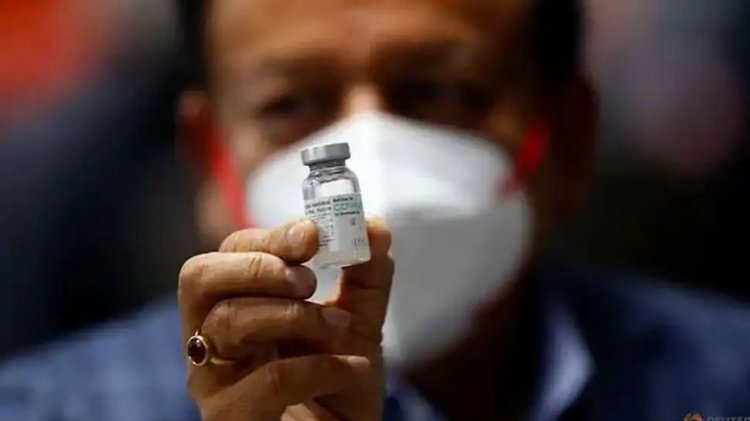Vaccine Diplomacy: India Ahead of China

India’s huge capacity to make coronavirus vaccines is helping India win the vaccine diplomacy battle with China, to gain political influence across the developing world. The competition is for enhanced influence in poorer nations who need to get cheap or free vaccines.
Chinese pharmaceutical companies have been reticent in sharing details of their pivotal vaccine trials crucial for building public trust. Meanwhile, India sent millions of doses to neighbouring Nepal, Bangladesh and Sri Lanka, allowing them to begin vaccinations earlier than if they had waited for Chinese doses.
India has shipped more than 6.8 million free vaccines around the world. China has pledged around 3.9 million, according to publicly available information compiled by Bloomberg, some of which have yet to arrive.
The rapid growth of China’s economy has allowed Beijing to forge ties with poorer countries by loaning billions under its Belt and Road Initiative. But Covid has given India a diplomatic opportunity. Its pharmaceutical industry, especially the Serum Institute of India, had already made the nation the main supplier of essential medicines to the developing world. Now it’s allowing India to push back against China’s growing influence. In Myanmar for example, Beijing promised to send around 3,00,000 doses but has yet to deliver anything, while New Delhi quickly delivered 1.7 million shots.
Indian strategy
New Delhi recognised early on that Indian production capacity would be crucial to beating the pandemic, said Ashok Malik, a policy adviser to the Ministry of External Affairs. Last year, when Indian manufacturers were exporting the anti-malaria drug Hydroxychloroquine — hyped by then President Donald Trump — Prime Minister Narendra Modi was already talking to world leaders about providing vaccines.
While India is prioritising its own population for vaccination, its ability to manufacture vaccines was always going to outstrip the nation’s ability to inoculate all of its own citizens. India is therefore, now deploying those millions of surplus vaccines to win friends and influence abroad.
Its domestic vaccine producers were free to sell to richer nations, but the government promised to buy supplies for smaller countries, as well as its own citizens. Officials organised trips for foreign ambassadors to visit pharmaceutical hubs in Pune and Hyderabad, and assured neighbours in South Asia, the Indian Ocean and even distant Dominica and Barbados they’d get affordable vaccines and would receive initial shipments for free.
India’s vaccine diplomacy has helped soothe some prickly relationships with neighbours in South Asia, “where it has been fighting an increasingly sharp diplomatic battle with China,” said Nicholas Thomas, an associate professor at the City University of Hong Kong, who has edited books on health challenges and foreign policy. New Delhi is “pushing back.”
Even on China’s borders, Indian shots are showing up. Mongolia’s prime minister received one of 1,50,000 free doses delivered by India.
India’s vaccine industry — which is delivering shipments to both developing and developed economies — has even helped ties with some industrialised nations suffering hold ups in deliveries of western doses. Canada for example, asked the Serum Institute to expedite shipments.
India is currently shipping Covishield, a locally-produced Oxford-AstraZeneca vaccine, and exporting Bharat Biotech International Ltd.’s home-grown Covaxin shots for clinical trials. Demand for Indian shots is expected to jump once Covaxin wins regulatory approvals, and Hyderabad-based Dr. Reddy’s Laboratories begins shipping the Russian vaccine Sputnik V.
Chinese areas of influence: Apart from Pakistan, China is having success in Africa and Latin America — major investment regions for Beijing. By early February, Beijing had sent vaccine aid to more than a dozen countries including Zimbabwe and Equatorial Guinea.
In the end, the competition between China and India to provide vaccines, especially to nations where their strategic interests overlap, are likely to help not only those nations but the rest of the world.
India Sends First Vaccine Doses To Africa
India Tuesday made its first shipment of a locally made COVID-19 shot to the WHO-backed equitable vaccine distribution network COVAX. "Fulfilling our commitment to help the world with COVID-19 vaccines, supplies of Made-in-India vaccine commence today for Africa under COVAX facility," Anurag Srivastava, spokesman for the Ministry of External Affairs, said on Twitter.
The World Health Organization this month paved the way for the Oxford University/AstraZeneca vaccine's global roll-out by approving emergency use of the product produced by the Serum Institute of India (SII), the world's biggest vaccine maker, and SK Bioscience of South Korea.
SII will also soon start producing the Novavax vaccine mainly for poor and middle-income countries.
India, the world's biggest maker of vaccines, has shipped over 17 million vaccine doses to more than two dozen countries - including around 6 million as gifts to partners such as Bangladesh and Nepal. For its own campaign, New Delhi has so far only ordered 31 million doses.
















